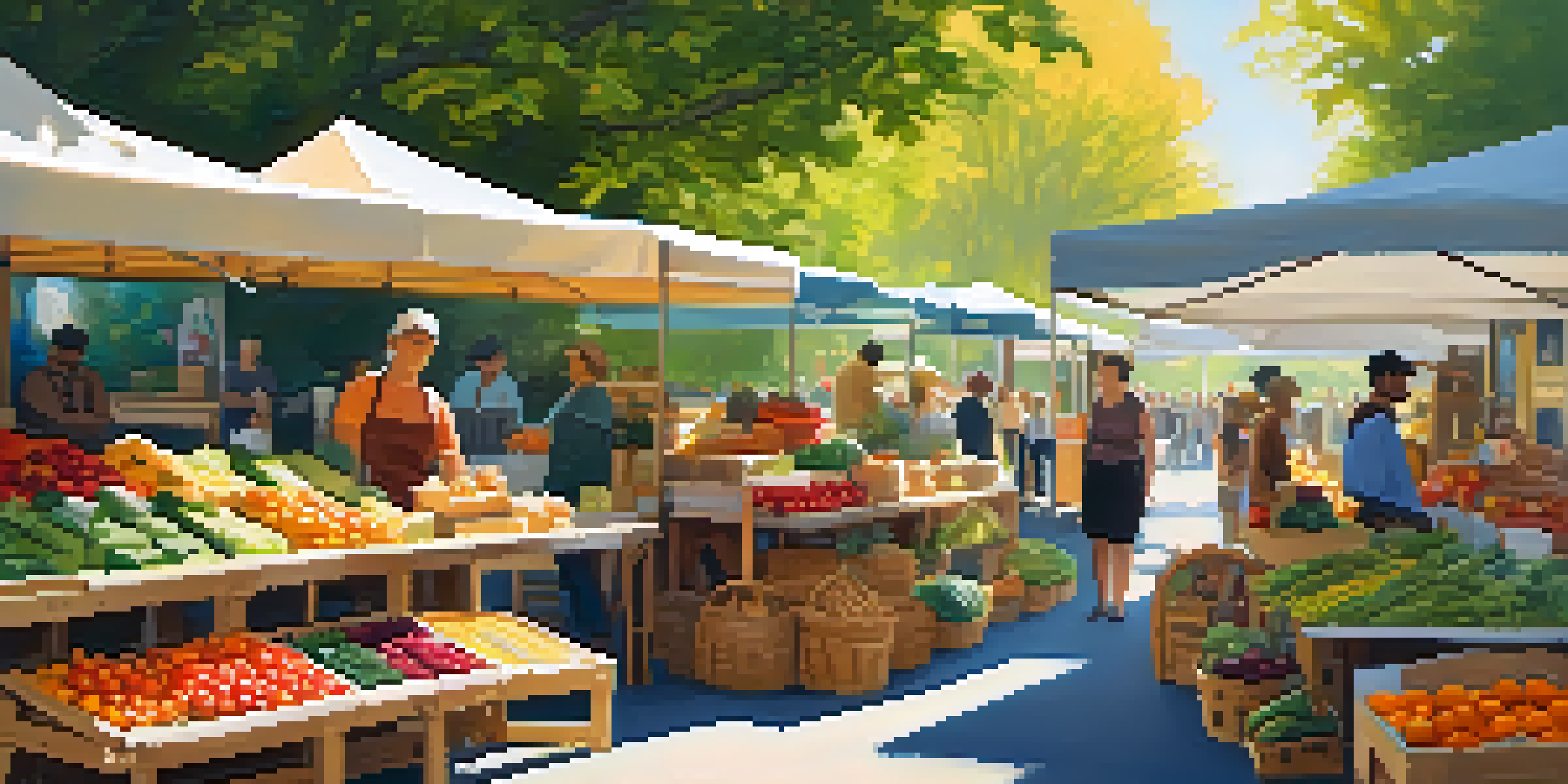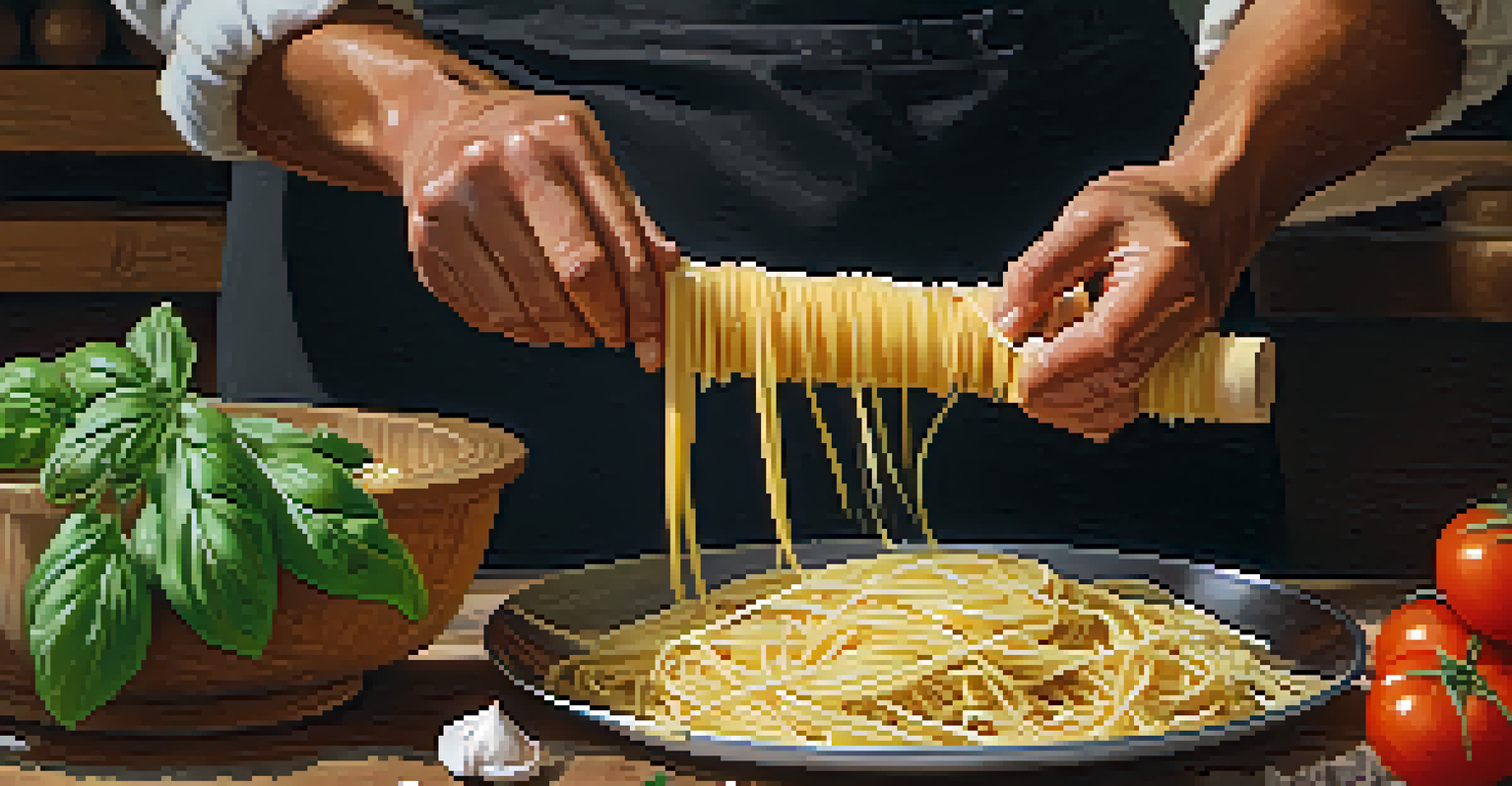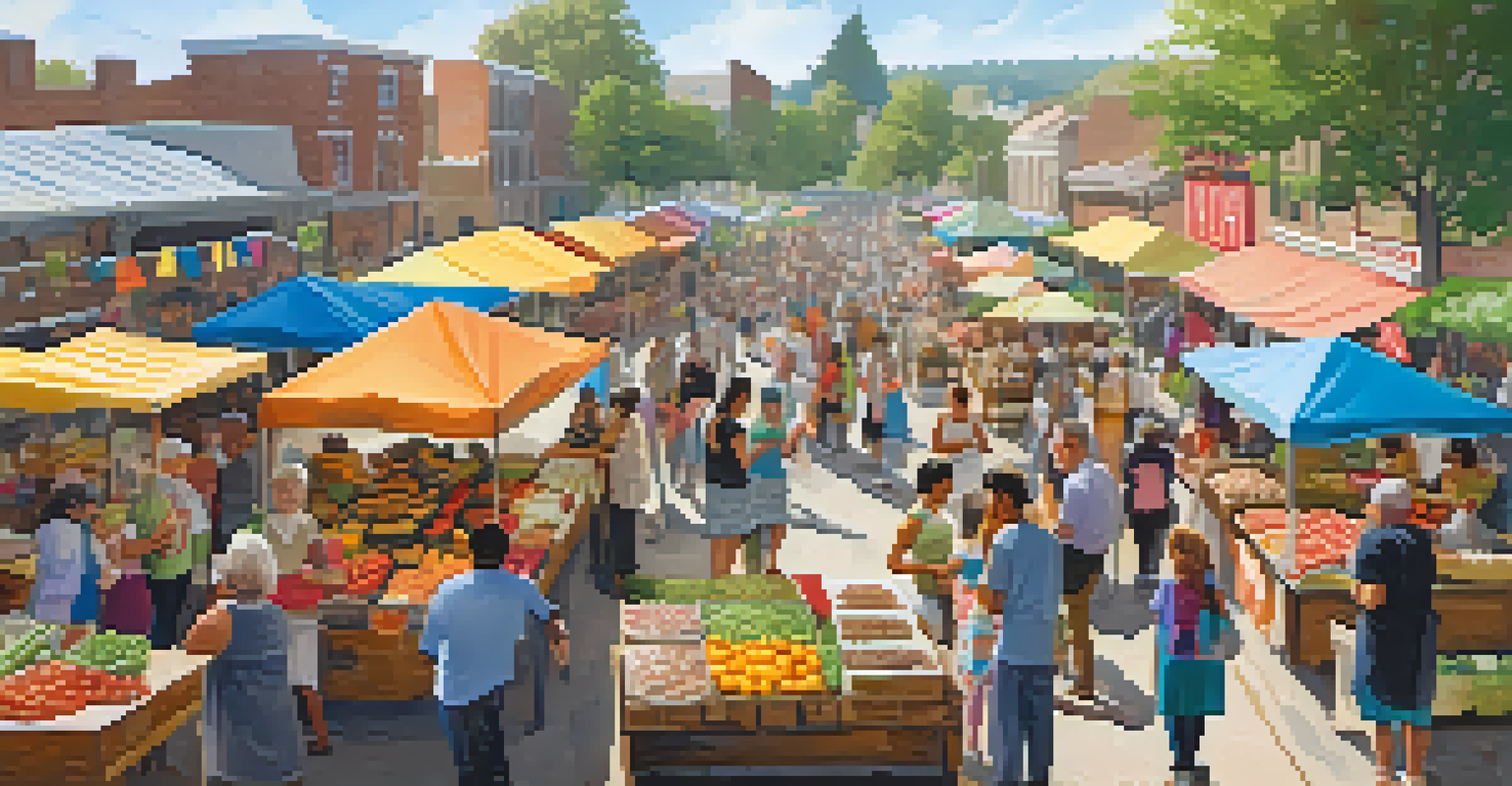Farmers' Markets: A Local Taste of Global Cultures

The Essence of Farmers' Markets: More Than Just Fresh Produce
Farmers' markets offer a vibrant tapestry of local and global cultures, weaving together communities through food. They showcase not just fresh produce, but stories, traditions, and flavors from around the world. Each vendor typically brings a piece of their heritage, inviting shoppers to experience diverse culinary backgrounds.
Food is our common ground, a universal experience.
Imagine strolling through a market where the aroma of fresh herbs mingles with the scent of spices from far-off lands. You might find organic tomatoes next to artisanal bread, and vendors sharing recipes rooted in their family's history. This creates an environment where food becomes a bridge connecting people from different backgrounds.
Moreover, these markets foster direct relationships between farmers and consumers, allowing for an exchange of knowledge and culture. Shoppers don’t just buy food; they engage in conversations, learning about the origins of their ingredients. This personal touch makes every visit a unique cultural experience.
Culinary Diversity: A World Tour on a Plate
At farmers' markets, culinary diversity comes alive through various food stalls offering international flavors. From Mexican salsas to Italian cheeses, each vendor presents a unique taste of their culture. This culinary journey allows visitors to explore different regions without leaving their hometown.

For instance, you might savor a spicy Thai curry paste while chatting with the vendor about its traditional preparation methods. This not only tantalizes your taste buds but also educates you on the cultural significance behind the dish. It’s a delicious way to broaden your culinary horizons.
Cultural Connections Through Food
Farmers' markets serve as a hub for cultural exchange, allowing vendors to share their heritage and stories with shoppers.
By sampling foods from around the globe, shoppers can discover new favorites and gain a deeper appreciation for global cuisines. This exploration fosters an understanding of the interconnectedness of cultures, reminding us that food is a universal language that transcends borders.
Supporting Local Farmers and Global Traditions
When you shop at farmers' markets, you're not only getting fresh produce but also supporting local farmers who often cultivate specialty crops tied to their heritage. This practice helps preserve agricultural diversity and traditional farming techniques that might otherwise be lost. By choosing to buy local, you play a vital role in sustaining these cultural practices.
The greatest dishes are very simple.
Many farmers incorporate traditional methods passed down through generations, ensuring that their products reflect a rich history. For example, a farmer might grow heirloom varieties of vegetables that have been cultivated in their family for centuries. This connection to the past enriches the food experience, making it more meaningful.
Additionally, supporting these farmers helps maintain the cultural fabric of the community. As farmers share their stories and traditions, they foster a greater sense of belonging and pride, making the market a hub for cultural exchange.
Food as a Cultural Storyteller
Every bite of food at a farmers' market tells a story, whether it's about the land, the people, or their traditions. Vendors often share anecdotes about their growing practices and the cultural significance of their products, turning a simple shopping trip into an enriching experience. This storytelling fosters a deeper connection between consumers and their food.
Consider the stories behind a jar of locally made jam. Each jar can represent the farmer's labor, the fruit's seasonal availability, and the recipe's history. By understanding these narratives, shoppers can appreciate the intricate web of culture that surrounds their food choices.
Supporting Local Sustainability
By shopping at farmers' markets, consumers support local farmers who employ sustainable practices and preserve agricultural diversity.
These stories also promote a sense of community as people gather to share their culinary experiences. Markets become places where traditions are celebrated, making food an integral part of cultural identity.
Workshops and Events: Learning Through Experience
Many farmers' markets host workshops and events that further promote cultural exchange. These activities often include cooking demonstrations, tastings, and educational sessions about sustainable practices. They provide an interactive experience, allowing attendees to learn directly from the producers and culinary experts.
For example, a vendor might conduct a workshop on making traditional pasta, teaching participants not only the techniques but also the cultural significance of the dish. Such experiences create lasting memories and enhance appreciation for the culinary arts.
By engaging in these events, shoppers develop a deeper understanding of the ingredients they buy and the cultures they come from. It transforms the market from a shopping destination into a vibrant learning community.
Building Community Connections Through Food
Farmers' markets serve as a melting pot of cultures, bringing together diverse communities. This gathering fosters social connections among locals who might not otherwise meet, creating a sense of belonging. Shared meals and culinary experiences help break down barriers, promoting inclusivity.
As people share recipes, cooking tips, and cultural traditions, they build friendships that extend beyond the market. These interactions help cultivate a supportive community where everyone’s heritage is valued. It’s not just about food; it’s about creating a shared space for dialogue and connection.
Community Building Through Markets
Farmers' markets foster a sense of belonging and inclusivity, bringing together diverse communities through shared culinary experiences.
Ultimately, this community spirit enriches the market experience, making it a place where cultures come together to celebrate diversity through food. It highlights the importance of local food systems in fostering a sense of unity.
Sustainability: A Global Responsibility
Shopping at farmers' markets aligns with sustainable practices that honor our planet and its cultures. Many vendors prioritize organic and regenerative farming methods, promoting environmental stewardship while preserving traditional agricultural practices. This commitment to sustainability is essential for the future of global food systems.
By supporting these markets, consumers contribute to a food system that values ethical practices. They help reduce carbon footprints associated with transporting food over long distances while encouraging local economies. This mindful consumption is a step toward a healthier planet.

Furthermore, many farmers share their sustainability stories, providing insights into their practices and the cultural significance of preserving the land. This knowledge empowers consumers to make informed choices that reflect their values, fostering a collective responsibility for our environment.